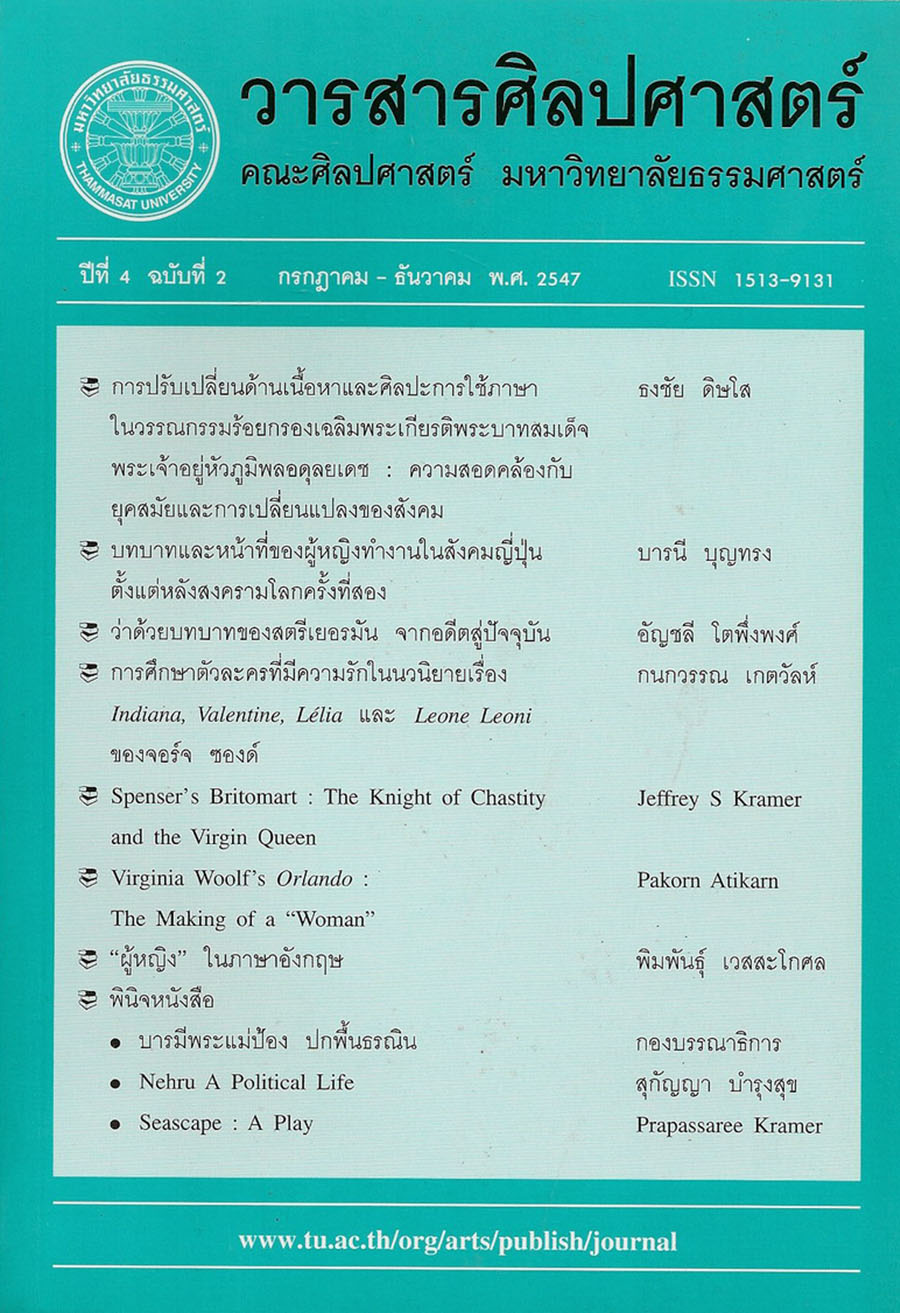Virginia Woolf's Orlando: The Making of a "Woman"
Main Article Content
บทคัดย่อ
Despite her own dismissal of the work as merely “great fun,” of scarce poetic significance compared to her other serious experimental works, this paper argues that Orlando’s fantastic logic is carefully applied as a strategic device to accommodate and celebrate the Sapphist desire between her lover Vita Sackville-West and Woolf herself, which is unarticulated within the patriarchal/heteronormative narrative. The marvel is seeing how Woolf in Orlando develops her strategy to legitimize the “outlawed” homoeroticism. In the light of Judith Butler’s influential theory of gender performativity-that gender is always a process in which we “do” rather than we “are”-we clearly see how Woolf, through the protagonist’s fastastic sex change and relocations within different culture, ingeniously contests the heteronormative assumption that sex, gender and sexuality exist in relation to one another. This significant collapse of the tripartite interrelation severs the compulsory relationship between one’s genitalia and one’s gender, and hence permits the true liberation of one’s sexuality.
แม้เวอร์จิเนีย วูลฟ์ จะปฏิเสธความสำคัญของออร์แลนโดว่าเป็นเพียงงานเขียนที่ไม่มีนัยสำคัญในด้านการทดลองการใช้นวัตกรรมทางวรรณศิลป์ บทความชิ้นนี้มุ่งชี้ให้เห็นว่าที่จริงแล้ววิธีการเขียนแบบแฟนตาซีในออร์แลนโดมีความสำคัญต่อตัววูลฟ์เองเป็นอย่างมากในฐานะเครื่องมือที่ใช้ในการพูดถึงความต้องการแบบ “แซฟฟิสต์” ที่วูลฟ์มีต่อวีต้า แซกวิลเวสท์ ซึ่งเป็นเนื้อหาที่ไม่สามารถเกิดขึ้นได้ในวาทะกรรมการเขียนแบบปิตาธิปไตยที่ผูกขาดให้ความรักต่างเพศเท่านั้นเป็นบรรทัดฐาน บทความได้ใช้ทฤษฎีของจูดิธบัตเลอร์ ช่วยในการเผยให้เห็นวิธีการที่วูลฟ์รื้อสร้าง “สมมุติฐาน” (ที่กลายเป็นเรื่อง “ธรรมชาติ”) ที่ว่า สภาพเพศเชิงกายภาพ (sex) เป็นตัวกำหนดการแสดงออกความเป็นหญิงหรือชาย (gender) และการเลือกคู่ครองต่างเพศเท่านั้น (heteronormative sexuality) การรื้อสร้างดังกล่าวจึงนำไปสู่อิสรภาพในการเลือกคู่ครอง

